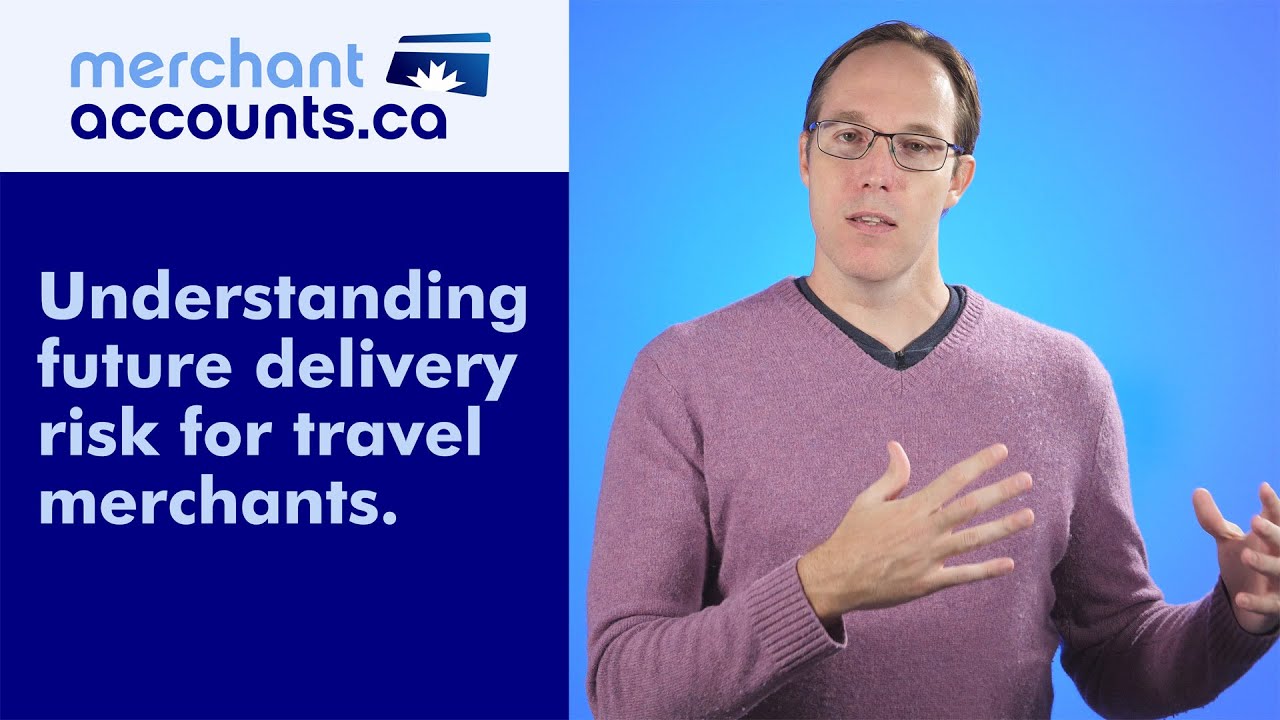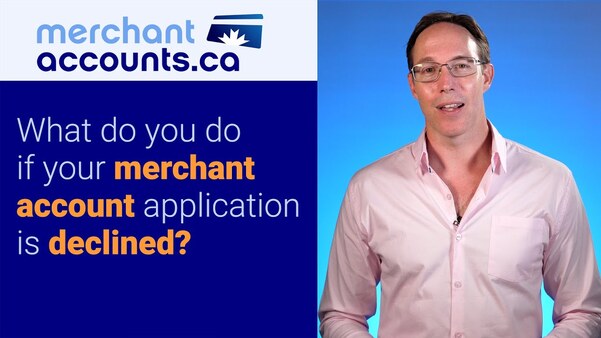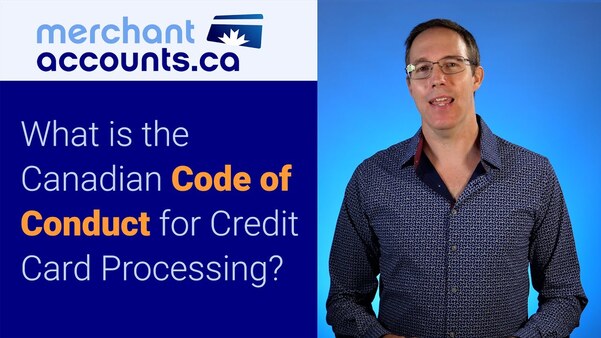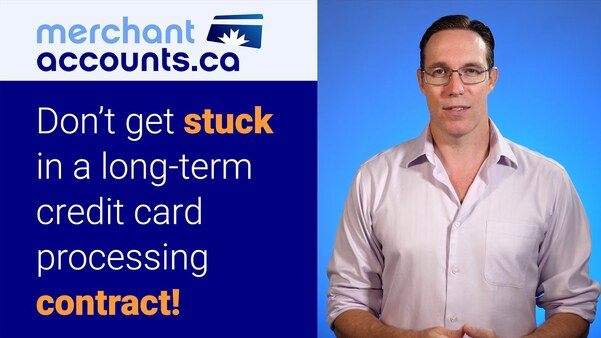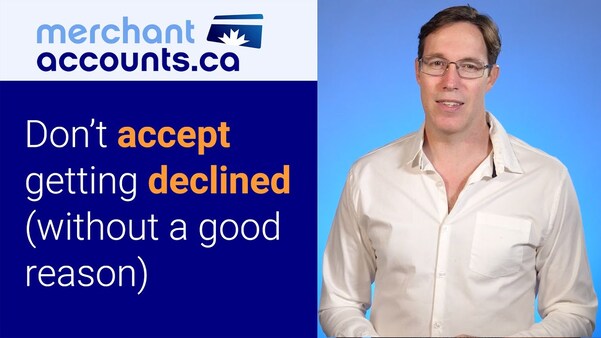Updated on September 08, 2023
(Originally posted September 24, 2013)
by David Goodale
How to get a merchant account if you operate in the travel industry.
Getting approved can be harder after the Covid-19 pandemic.
Key Takeaways
1
Understanding Industry-Specific Challenges
The travel industry poses unique challenges for merchant account approval due to higher chargeback risks.
Merchants in the travel industry must emphasize risk management strategies, and demonstrate a commitment to satisfaction.
2
Building Trust with Payment Processors
Demonstrating strong financial stability, clear refund and cancellation policies, and effective fraud prevention measures can increase the likelihood of approval.
3
Choosing the Right Payment Processor
A processor with a solid understanding of the industry's unique challenges and risk factors will be better equipped to provide tailored solutions.
Need help with this topic? Or a rate quote?
Whether its questions about this article, or you want to see how we can lower your costs. Don't hesitate to contact us.
Most travel companies were hard hit, but many have survived covid in fairly good shape. However, the event did prove that travel can be disrupted in emergencies, and some payment processors continue to look at travel and future delivery type businesses as fairly high risk.
The information in this article isn't just still relevant: it's more important than ever. You can still get approved, and can reduce the amount of collateral (also often referred to as a "security reserve") held back by your processor. However, to succeed you must be strategic in your approach and separate yourself from other travel businesses. Stay tuned and we'll explore how to make the most positive aspects of your travel business shine through.
Are travel businesses still able to get a merchant account?
By travel, we should clarify that we're referring to a business that is taking payment from customers and sending them on a trip, tour, cruise or other type of destination based service.
It's the long lead-time component that creates the majority of the problem in terms of getting approved for credit card processing in the travel industry. (Where people are paying far in advance for travel that won't occur for several months in the future. Discussed in greater detail below).
When you want to start accepting credit cards you will need to submit an application for a merchant account. What you sell will play a major role in determining whether your application will be approved, and also the rates that you will pay. Travel agencies, tour operators, and airlines all have certain business characteristics which make application approval more difficult.
Let's back it up a step. Do you understand why your business must be "approved" to be able to accept credit cards?
If a payment processor earns it's income by earning a little bit of money every time a merchant processes a credit card transaction, then shouldn't they be grateful to provide services to any business? In other words, why would we make our clients go through an application process at all? Shouldn't we just thank our lucky stars that a client has chosen to work with us?
The answer to this question is obvious. We'd prefer clients not to submit an application. We'd prefer to throw the doors wide open, and let anyone and everyone process payments. The problem is that in reality we cannot possibly do this. There are fraudsters, identity thieves and other nefarious organizations that we (along with Visa, MasterCard, and the government) most certainly will not process transactions for.
That is only a small part of the story though, and not the main thrust of this article. The real issue comes from the following concept:
Visa and MasterCard protect their cardholders. They have a very simple policy: When someone pays for something with their credit card, they will receive it. Guaranteed. If they don't get what was promised, they will get their money back. This is one of the core concepts, and greatest advantages of using a credit card to submit payment.
Why does the processor care? What can go wrong?
If we run with the logic stated above, that the customer is guaranteed to receive what was promised, we will begin to understand why every processor must have an application process. We'll illustrate it with a simple and humorous example. A brilliant college student wants to write the next great app. He's also on a college budget, and can't afford the latest and greatest phone. Motivated, deeply inspired, and truly gifted he comes up with software that can make a smartphone run faster. It is brilliant software, and works fantastically. It becomes a sensation, and from his dorm room he is soon selling $800,000 worth of this software per month.
Things go great, but after 3 months of consistent use it's found that the CPU in the phones start burning up because they are overheating. It's found that there is a flaw with this software, and it does not function as promised. Chargebacks start rolling in. In this example, this is the moment where everything goes off the rails, and the processor gets hit with the financial liability. As a cardholder, if you feel you did not get what was promised you can contact you card issuing bank and dispute the transaction. This is called doing a "chargeback". In this (somewhat silly) example the software is definitely not performing as promised.
When a chargeback occurs the processor immediately must put the funds back into a dispute reserve. There is a process in which the merchant and the customer either resolve the dispute or argue their cases. In this example, the processor would end up having to refund all the money to all the customers that had purchased the software. They contact the college student to tell him he immediately needs to return the funds he's received back to the processor. Unfortunately, he spent the money on a Ferrari and a legendary keg party that will go down in campus lore. He doesn't have near enough money or assets to pay back the processor. The processor had to pay the money back to the customers, and are going to eat a tremendous loss.
This very simple and albeit ridiculous example illustrates the concept of how a credit card processor is exposed to risk and can lose money when processing transactions on behalf of merchants. Thus, when taking on a new client, the underwriting or risk monitoring team at the credit card processor will evaluate any new potential client before agreeing to work with them. Without getting too side tracked (because it's beyond the scope of this article), some processors such as Paypal do not appear to need to do this application process. They still need to do it (because the logic in the above example obviously still applies). The difference is that most aggregators do a full review only after someone has started processing. That's because (by virtue of their business model) they have a lot of people signing up for the service that never really use it. So the underwriting process at an aggregator is often reactive as opposed to proactive. If you want to read more about the differences between a merchant account provider and an aggregator you can read more at in our article about why aggregators sometimes freeze the accounts of successful and growing businesses.
Now that we have a basic understanding of why an application process is required, and how chargeback risk works, let's look at why travel related businesses are often considered higher risk.
It should be fairly obvious that some products or services are more likely to be targeted by fraudsters or disputed by customers, and this increases the likelihood of a greater number of chargebacks occurring.
It may be a surprise that travel based businesses are falling under the high risk umbrella. After all, doesn't almost everyone enjoy travelling at some point in their lives? You may be thinking, and quite rightly so, that travel is a fantastic service that brings happiness to people's lives, and doesn't attract fraudsters or nefarious individuals at a rate greater than any other business. You would be right in that assessment.
The risk from travel businesses comes from:
| (i) | Future Delivery. The typical person books their vacation about 60 - 90 days in advance of the date of travel. It is true that there are last minute travellers, business travellers who may book last minute, and serial planners who may book well in advance. The industry accepted mathematical average is that the typical traveler books their vacation 60 - 90 days before departure. This means that there is 60 to 90 days for something to go wrong, with the customer not receiving what was promised. If the merchant goes out of business during this time it means the cardholder won't receive what was promised to them. 60 to 90 days is a pretty long time, and a lot can go wrong in 60 to 90 days, especially in an industry that historically has peaks, valleys and volatility in terms of the stability of some businesses within the travel industry. | |||
| (ii) | Ticket Sizes. Travel is usually expensive. Ticket sizes in travel based businesses can range significantly, from affordable package trips to a destination like Cuba, to a multi-city trip throughout Europe on a prestigious cruise line. The point is that the tickets can be as small as about $1,000 and get much larger from there. Even on the lowest side the average ticket for travel is at least $1,000, and it could be a $20,000 cruise. This means that if a chargeback or dispute does arise it's going to be for a serious amount of money. Compare this with a merchant selling books online. In an online book store the typical sale amount might be about $50. If a dispute happens with a travel company (in general) it's safe to say that the amount being disputed is going to be for more money. In some travel companies the average ticket might be very large, which means every chargeback dispute has the potential to be painful for the credit card processor (if the merchant is unable to give the money back to the cardholder). | |||
| (iii) | Transaction Volume. The risk associated with transaction volume builds upon the point made above in reference to ticket sizes. However, transaction volume is not an issue for every travel business. Airlines are a fantastic example of how sometimes a merchant is too large, and there is too much risk associated with the industry, so that the processor won't want to board the business. We will use the example of an airline. I do not want to name any particular airlines, but think of the typical large airline. An airline can process a few billion (yes, billion) dollars per year in ticket sales. The airline industry is also one that is historically turbulent (bad pun), with large airlines folding, going through bankruptcy protection, etc. Let's revise our college student example where the bank got hit by chargebacks and had to absorb the loss and apply it to a large airline instead. XYZ Airlines Inc. is a huge international airline. They process 2 billion dollars per year in credit card sales, which works out to $166,666,666 (one hundred and sixty six million) dollars processed per month in credit card sales. What should happen if (and not for the first time) the airline fails, or something happens in that the flights cannot happen. Chargebacks roll in. A lot of chargebacks. The typical customer of this airline books their flight 60 days in advance of the flight taking place. That means that the processor has to pay 60 days worth of unfulfilled flights back to the cardholders. That works out to 2 months of processing activity, roughly 330 million dollars worth of undelivered flights. The processor pays it out, contacts the airline which has filed for bankruptcy protection. Travel is one of the few industries where the volumes are so big and ticket sizes so large that it can bring a processor to it's knees in terms of devastating financial losses. It's also an industry that has historically had some very large companies go bankrupt. This risk also applies to cruise lines, travel operators, and other large travel businesses. This risk fortunately does not apply to smaller tour operators, airlines and travel based businesses. | |||
What can a travel company do to help get approval?
Cover letter: One of the best tools in the arsenal is a good cover letter. It's surprising how many travel companies (especially young ones that haven't been established for very long) don't take advantage of this. You submit the cover letter on top of the package when faxing in your application documents. This is your chance to advocate for yourself, point out your strengths, and paint the application in a positive light. In the cover letter you would explain your expertise your industry. Try to address any areas of your business that may be seen as risky and put emphasis on reasons why your business is different. If future delivery is a big concern in your industry, and especially where it's a young company that is desperately in need of approval, you might offer to limit how far in advance customers can pay for services. If you market your tours to customers overseas in territories where fraud is more prevalent, explain how you have experience in marketing to customers in this territory, and the fraud control steps intend to implement which will reduce the likelihood of fraud. If the directors of the business have expertise or have been attached to any other businesses, especially in travel (but not necessarily limited to it) point it out. This is your chance to tell your story, and let the application be seen in the light that you want it to be seen.
Processing history: If you have an established business and are currently processing credit cards (with the goal of switching to a new processor) your application package will be significantly strengthened. The rule of thumb is to send in at least 3 months statements for any low risk business. If you are in travel, and especially if your business experiences peaks and valleys (most travel businesses are seasonal) it probably makes sense to send one year worth of credit card processing statements. It's a bit of work, but it lets the underwriter see what really happens, and not have to imagine or make an educated guess in terms of your volumes, refunds, chargeback activity, etc. This helps clearly demonstrate that despite what may be standard in your merchant classification category, you manage to conduct business while maintaining a very low chargeback ratio. Some travel businesses are startups and do not have this luxury because they have not yet been able to process credit cards. In that case you want to make sure your cover letter is exemplary, and if you have investors illustrate why the company is financially in good shape for a young company by providing financials...
Business Financials: The most powerful tool in the shed to pull down the risk score is to demonstrate that your company is stable and will continue to do business well into the future. A company with strong financials will be seen as much lower risk than a company in difficult financial shape. In the case of a startup, it is obvious that most startups are not cash rich, but sometimes a startup will have had significant investors come on board. This helps add credibility and will give the underwriter confidence when reviewing the file. In the case of a long established, seasoned travel business, the financial strength of the company is going to tell most of the story. Companies with a strong cash flow situation demonstrate capable management, and the ability to absorb any blips or problems with fraud, as well as the normal peaks and valleys that occur in the travel industry. If the bank knows that your business is here to stay, they don't have to worry about customers paying for services and not receiving them, thereby greatly reducing the potential for chargebacks.
What if the risk score is just too high? What will happen is the processor considers my business too high risk to work with?
In some cases the risk score for a particular business is just too high to approve. Oftentimes, the underwriter will like the business and want to work with it, but some aspect of the application is just causing the risk weighting to come back too high. For example, there might be a brand new airline, it's not cash rich, but the board of directors is made up of legendary and influential travel industry experts from some of the most respected travel businesses on the planet.
In this case, the underwriter will see the potential. They will offer an approval with special terms attached that will allow them to give the green light, while still offering a measure of protection to the credit card processor.
Fixed security reserve: With a fixed reserve, the underwriter will either request a specific amount of money to be paid up front (common for cash rich and established businesses), or they will accrue and deduct funds from sales as they occur (common for startups). Established businesses often choose to pay an upfront security reserve because they have the cash on hand and it can make bookkeeping a bit easier (no reserve to keep track of). Small companies most often do not have the cash on hand to pay an upfront deposit, or even if they did, this money could be better invested into marketing initiatives or ways to grow the business. That is why a small or startup business will usually ask to accrue the reserve. For example, the bank may want a fixed reserve of $20,000. They could hold onto 25% of every sale that is processed until they have built up a cushion of $20,000. This is held in security to guarantee against future chargebacks that may occur. Once the reserve is built up the merchant is funded 100% as normal with no further holdbacks.
Rolling reserve: A rolling reserve is similar to a fixed reserve that is accrued, except there is no set number that the bank wants to build-to. Instead, it's a constantly rolling percentage of the total sales. For example a rolling reserve of 15% for 90 days means that 15% of the total processing volume is held by the acquiring bank for 90 days. 85% is funded immediately into the merchants as normal. The remaining 15% that was held back is released on the 91st day to the merchants bank account. Rolling reserves are popular in comparison to fixed reserves, because the amount of the reserve is always proportional to the amount of money being processed. It is safe to say that many travel based businesses will have some type of reserve attached to the approval of their account. The challenge is to make sure that if a reserve is asked for that it is not a heavy handed reserve. By using the tips discussed herein you can structure your application so that if a reserve is asked for it is less likely to be a large reserve, and if it is too heavy, you are well informed and capable of negotiating it down by pointing out the strengths of your business.
Delayed funding: Delayed funding means that 100% of funds are sent to the merchant as normal, but there is a short delay between when the transactions are processed and when the funds are sent to the merchant. For example, merchants are typically funded on a daily basis, but some merchants could receive an approval with the condition of once per week funding, one week in arrears. In this example, the merchant doesn't have any type of holdback or rolling reserve, but they have to wait a week after processing a card transaction is processed before they receive their funds.
Merchants often receive conditional approvals with a combination of the above in order to achieve approval. It's worth noting that some processors are quite willing to enter in to a conversation and try to work with the travel company to provide an approval that they can work with. (We like to think that is how we operate at Merchant Accounts.ca). Some processors do not let the underwriters actually speak to the client, and have more of a "take it or leave it" type approach. Early on in your negotiations, before submitting the application, it is in your best interest as a travel business to ask your representative at the prospective credit card processor what their appetite is like for a travel related businesses. If it's all green lights and good news you should be wary. More likely, what they should offer to do is revert back to the underwriter to discuss your situation at a high level and see what the feedback is. If you do your research, and if your potential processor is doing a bit of leg work, collecting preliminary feedback, and can give you specific references of travel companies similar to yours that they have helped, then you are more likely to get a good outcome when working to get approval of your merchant account.
As a last note on reserves and holdbacks, no matter what the conditions of approval are upon first going live, your risk profile will change over time. After 6 months or 1 year you can request for the terms of your merchant processing to be re-reviewed. If the business is growing, in good (or improving) financial shape most likely the reserve will be lowered over time. In travel it's possible that there may always be some type of reserve attached to the account, but it most likely will be smaller once a business is established than it was in the startup or early stages. There is also the comfort level on the processors side as well. As they get to know you, the management, and the stability of your business they are more likely to loosen the restrictions that may be placed upon first going live.
Summary
Covid-19 has made getting a merchant account even harder for businesses in the travel industry. However, some payment processors (like us at Merchant-Accounts.ca) are still quite happy to take on travel merchants. But the cover letter, and your busienss case are more importnat than ever. Even if it means making an adustment in the short term, such as lower the amount of upfront deposit, or shortening the timeframe between the balance payment and arrival, can go a long way to helping.
Ultimately, while travel based businesses often are higher risk in comparison to merchants such as a brick and mortar retailer, there are things that you can do to improve your chance of approval (and the conditions of approval). Keeping your average ticket price low by taking a smaller deposit upfront and billing the balance closer to the date of travel will help. Reduce future delivery by limiting how far in advance you can take a reservation. Work with the underwriter at your prospective credit card processor to reduce the risk and get your application approved. Add an ingeniously crafted, stunningly compelling cover letter that leaves no doubt about why your business is better, stronger and more desirable to work with than a typical travel based business. You should work with your account manager at your desired processor to carefully construct that cover letter together. It should demonstrate your company in the best possible light. If the sales person that is helping you glosses over the importance of the cover letter it means they are not putting proper effort into supporting you (and may be a sign of things to come).
Admittedly, travel based accounts are harder to approve than some other types of accounts. The good news is that with effort and strategy (and in some cases security reserves), almost any legitimate travel business should be able to achieve approval.
Authors Note about Travel
If you have a travel based business and would like advice, or a consultative approach to the potential of approval for your travel business do not hesitate to contact us. As the author of this article (me - David Goodale), I handle most of the travel related accounts here at Merchant Accounts.ca. You are welcome to contact me directly at 888-414-7111 ext. 5 / 905-901-2254 (direct) / david@merchant-accounts.ca.
Related Topics
March 15, 2022
It's common for merchants to have security reserves, rolling reserves, or holdbacks from the credit card processor. In this discussion we explore how to reduce or eliminate them.
December 23, 2014
One of the worst situations to find yourself in is being stuck in an unfair credit card processing agreement. They can be costly and difficult to get out of. In this article we'll explore ways to get out of the agreement at painlessly as is possible.
June 24, 2020
Why do payment processors have holdbacks or reserves on your merchant account? In this discussion we explain the concept of future delivery chargeback risk, and explore how to reduce the collateral held on your merchant account.
December 08, 2016
Establishing credit card processing for an airline can be very difficult, especially for young airlines, but also even for well established carriers.
June 12, 2023
David explains what to do if your payment processor suddenly starts holding onto your funds, or implements a larger holdback or reserve.
August 27, 2023
What should you do if your merchant account application is declined? David explains why payment processors decline some merchants, and how to turn it around and get an approval.
November 23, 2023
Canadian merchants are protected by the Code of Conduct for the credit card processing industry. It's a set of rules that credit card processors must follow with the intent of protecting business owners from unfair pricing and contract practices. For example, it protects merchants from unfair price increases. In this video David explains the most important things that business owners should know about the code of conduct.
February 13, 2024
If you sell expensive products or services you'll find that many payment processors want to hold back some of your funds in a reserve, or may even decline your merchant account application altogether. In this video David explains why this happens, and what you can do about it.
July 10, 2024
How long of a contract should you be willing to sign when setting up credit card processing for your business? In almost all cases the answer should be monthly. Long term contracts should be avoided. David explains how to get a monthly agreement, and a few exceptions to the rule when long-term contracts can be beneficial.
February 26, 2025
Merchants can get declined for a number of reasons like bad credit, a high risk product or service, or the risk of chargebacks to the credit card processor is too high. However, you should always be able to get a clear explanation of why you were declined. A good strategy is to always find out why you were declined, and specifically: what you should work on improving in the future. If your credit card processor canít tell you why you were declined this is a sign of a bad credit card processor.
May 07, 2025
Some businesses are harder than others when it comes to establishing a credit card processing solution. Surprisingly, construction and contracting businesses can sometimes have a problem with banks and processors holding onto their cash. In this video David explains why construction companies can sometimes run into a problem when opening a merchant account with a payment processor, and what you can do about it.
View Rates
If you haven't reviewed your processing costs in a while take a moment to view our rates.
View Rates




